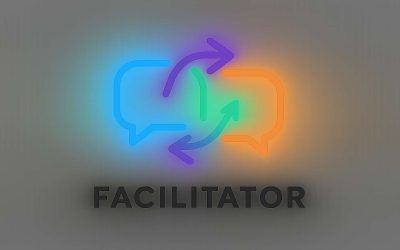
A training facilitator is someone who is responsible for managing the learning process and ensuring that it is conducted effectively. He or she can be hired by a company to lead training sessions for employees. In most cases, a training facilitator will have a college degree and some training experience.
Some of the skills necessary to succeed as a training facilitator include good communication, leadership, and organizational skills. Training facilitators also need to be knowledgeable about their audiences’ needs, including how they learn and what motivates them. They should also be able to adapt their teaching methods to meet those needs.
An effective facilitator knows that people are more likely to participate if they feel that they are being heard. That means that they should create an atmosphere where everyone is allowed to voice their opinions. This is often done through dialectical inquiry, a technique that gets group members debating different topics and divisions of thought.
The training facilitator’s role can range from leading individual discussions to overseeing large-group training. Depending on the type of training, a facilitator may have to develop and deliver training materials and activities. Moreover, they are also responsible for evaluating and assessing individuals. Typically, they will maintain records of each employee’s training and attendance.
During the course of the training, a facilitator should ensure that each participant gets a chance to contribute. If there is a lack of participation, the training facilitator should try to find out why. Sometimes, a person might not want to attend a training session because it is too challenging for them. However, the goal of the session is not to force a participant to take on a role that is not theirs. Instead, the facilitator should focus on fostering group unity.
A skilled facilitator can help a team make decisions and resolve conflicts. They can identify skillsets that need to be developed and outline connections between tasks. Also, they can mitigate ill-timed feedback and misinterpreted expectations. Ultimately, they can maximise investments.
Facilitators also need to develop a positive working relationship with others. This involves developing constructive relationships with managers, supervisors, and other employees. Those who are outstanding facilitators have the ability to motivate, inspire, and help their team members achieve goals. Similarly, they can help leaders excel.
A high performing training facilitator will always have an open mind. This means that they will be willing to consider alternatives to their agenda. For instance, they will plan stages against the time that a learner has to reach the desired outcome. Furthermore, they will know when to ask questions and to encourage dialectical inquiry.
Ultimately, the facilitator should make it clear what the objectives of the training are. While it is important to set ground rules for the sessions, a facilitator should never dictate what a learner should do.
One of the most important qualities of a skills development facilitator is creativity. This refers to the ability to use innovative tools and strategies to help learners understand and apply new knowledge.



0 Comments